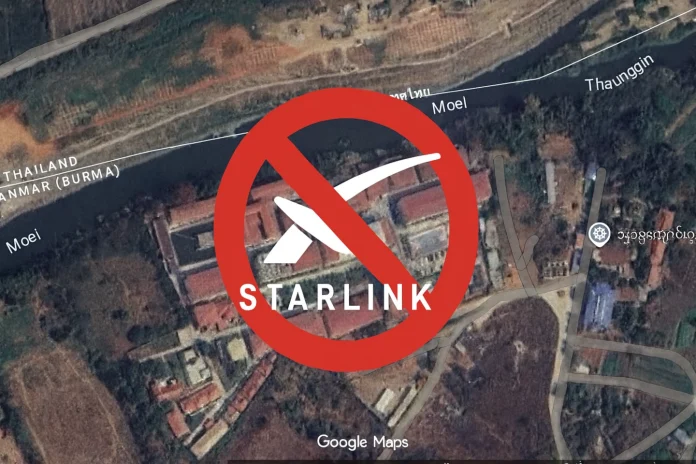SpaceX disables over 2,500 Starlink devices used by Myanmar scam centers | AGB
Summary
SpaceX has deactivated more than 2,500 Starlink satellite internet terminals that were operating in the vicinity of suspected scam compounds in Myanmar. Lauren Dreyer, SpaceX’s VP of Starlink business operations, confirmed the move on X but did not give exact timing. The action follows an AFP investigation that found widespread use of Starlink kits on large compounds — notably along Myanmar’s border regions — where romance, investment and cryptocurrency fraud have been organised amid the country’s post‑coup conflict.
After Thailand imposed a cross‑border internet and power blockade earlier in the year, many scam centres reportedly turned to Starlink to regain connectivity, often mounting multiple dish receivers on roofs. Myanmar’s military recently raided KK Park, seizing 30 Starlink devices, though AFP reporting and independent analysis suggest thousands of terminals were in use at that site. Observers reported more than 1,000 people leaving KK Park after the raid. Authorities have linked these transnational scam operations to human trafficking, forced labour and large‑scale digital fraud affecting victims across Asia and beyond.
Key Points
- SpaceX disabled over 2,500 Starlink kits near suspected scam centres in Myanmar, confirmed by a company executive on X.
- An AFP investigation exposed heavy Starlink usage across sprawling compounds involved in romance, investment and cryptocurrency scams.
- Thailand’s earlier internet and power blockade pushed some operations to rely on Starlink satellite connectivity.
- Myanmar’s military raided KK Park and seized 30 devices, but evidence indicates many more terminals were in use there.
- Scam compounds are connected to wider criminal activity, including human trafficking, forced labour and cross‑border fraud.
Why should I read this?
Quick and blunt — if you follow tech, security or regional crime, this matters. SpaceX stepping in to disable thousands of kits shows satellite internet is now a tactical tool in cross‑border criminal networks. It’s a rare example of a private tech firm directly disrupting illegal operations at scale, and the fallout could affect how companies, governments and regulators handle satellite connectivity in conflict zones.
Context and Relevance
This story sits at the intersection of tech responsibility, regional security and organised crime. It highlights growing reliance on commercial satellite services to bypass local network controls and keep illicit operations online. For policy makers and operators, the case raises questions about corporate takedown authority, evidence thresholds for disabling services, and how to balance connectivity with preventing abuse.
For businesses and investigators, the incident signals a shift: satellite ISP actions can materially change on‑the‑ground criminal capabilities. For victims and regional governments, it underlines the transnational nature of modern fraud and the need for coordinated responses across borders and between public and private sectors.
